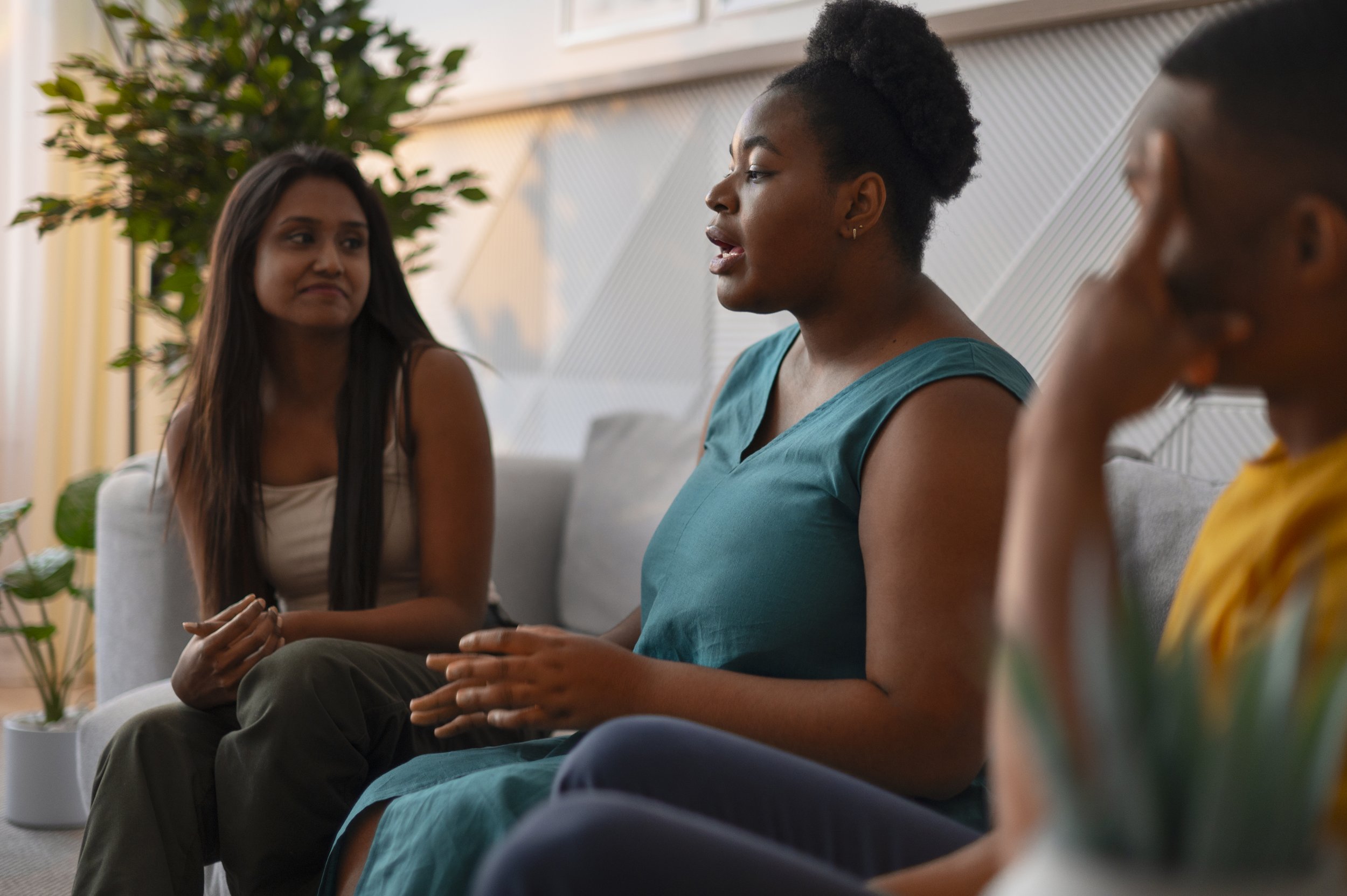
Decolonising Therapy
Why We’re Different
We’re a team of racialised therapists and trainees who provide culturally responsive therapy to racialised communities. We believe in our right to heal away from the white gaze.
We have a decolonial, intersectional and anti-oppressive approach to therapy that is grounded in principles of intersectional feminism, Black Liberation and Black Psychology.
We acknowledge the impact of violent systems on mental health, using therapy as a tool to actively dismantle oppression and bring about collective liberation.
We’re critical of our training and the violent roots of Western psychiatry and psychology, integrating African-Centred and Indigenous practices to reduce harm.
We welcome those with multiple marginalised identities including LGBTQ+, gender diverse, neurodivergent and disabled communities as intersectionality is a key tenet of social justice work.
We campaign for justice in the mental health profession, which includes widening access therapy, reducing harm for racialised trainees and advocating for anti-oppressive practice within services.
We’re committed to excellent standards of care and we were nominated for Best Mental Health Service of the Year Award (2024)
For Clients ✹
We provide confidential and specialist mental health and wellbeing support with one-to-one, couples and group therapy sessions that are trauma-competent and tailored to your needs. Low-cost places are available.
For Professionals ✹
We offer supervision, workshops and training on anti-racism and anti-oppressive practice to health and social care professionals. We work with educational institutions to build a more inclusive curriculum and we offer placements and specialised CPD to racialised trainees.
Liberated Minds ✹
We provide decolonial education through classes, workshops and programmes that teach essential skills for learning how to thrive under oppression.
Podcast ✹
Listen to ‘My Mothers Trauma’, our podcast that invites a different conversation on how to break the cycle of intergenerational trauma through an anti-oppressive lens of justice and liberation.























